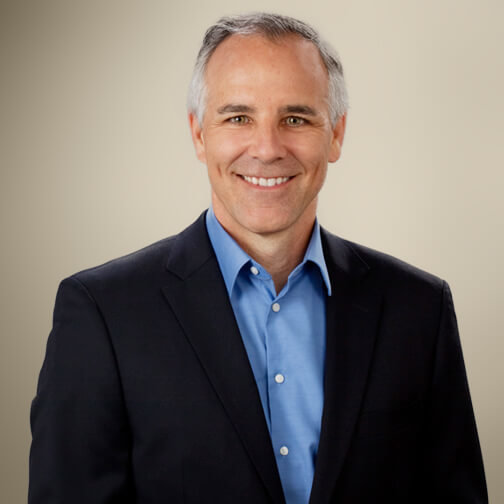Advisor Showcase: Guiding Clients Through Post-Recession Uncertainty
Litman Gregory’s advisors were asked to participate in the North Bay Business Journal’s Wealth Manager Survey, which asked advisors to respond to questions about the financial markets post the pandemic-induced recession, new investment opportunities, risks, inflation concerns, lessons learned, and advice from their experience.
Below we share a selection of responses from Senior Advisors in our North Bay-based advisory team: Monica Muñoz, CFP®; John Baxman, CFP®; Chris Wheaton, CPA, CFP®; Craig Keller, CFA; and Lesley Cannan, CFP®.
In addition, Senior Advisor, John Baxman, CFP®, was featured in the published article: “Road ahead for your money: North Bay wealth managers unpack what’s known and possible in this challenging year”.
In the pandemic, more people saved. Did they sock money away in safer, but lower return vehicles like saving or money market accounts? And if so, are they already moving money to more return-driven investments?
In ongoing discussions with our clients, we help them determine an amount of money to set aside in safer investments like cash or money market funds which can provide for shorter-term cash flow needs and provide an “emergency fund” as needed. The pandemic, and market volatility that followed in the early months, reinforced the importance of this strategy, and provided another opportunity to revisit these discussions with our clients. Having funds set aside in cash allowed clients to “stay the course” and remain invested during a market downturn, and also provided some clients with the comfort to reinvest any additional savings in their investment portfolio during this time. ~ Monica Muñoz, CFP®, Vice President – Senior Advisor
Related, have you moved on your outlook, now that there are signs that the economy is quickly shaking off the pandemic, to a more aggressive stance with your investment suggestions for clients?
We expect that the global economy will continue to recover, and that corporate earnings growth will be solid. We believe that this backdrop will favor higher-returning asset classes. While our portfolios are diversified across many types of investments, we have slightly increased our allocation to stocks across our portfolio strategies. Because there is still a high level uncertainly around the course of the pandemic, we are sure to be in contact with our clients to continually discuss their portfolio strategy and any changes that should be made as their circumstances, or our investment outlook changes. ~ John Baxman, CFP®, Director – Senior Advisor
You have experienced the very brief recession from the pandemic, perhaps even the Great Recession of a few years back. Survived or thrived? Did you learn some lessons that you take forward now?
We thrived during the pandemic. We stayed the course, kept almost all of our clients fully invested in their chosen investment strategy and kept clients on course to meet their long-term goals. In terms of lessons learned, after going through the dot-com bubble, the Great Recession and the Pandemic Recession the lesson that has been reinforced in my mind is to not sell into a bear market. In all of these downturns, long-term investors benefited from keeping their target stock allocation, rebalancing the portfolio to buy more equities when the stock prices drop and sticking to their long-term investment policy. In short, when seas turn stormy, stay the course. ~ Chris Wheaton, CPA, CFP®, Managing Director – Senior Advisor
Real estate is hot, at least for now. What are the investment opportunities there, or is it something you’d suggest people go easy on?
Historically low interest rates have increased the valuations for many asset classes, and valuations can be justified by such a low discount rate. Higher interest rates will challenge these valuations, for real estate as well. Our recommendation in real estate is to be opportunistic, and to allocate where a successful outcome is a function of more than just access to cheap capital and high leverage rates. The means partnering with highly experienced sponsors and operators that understand unique real estate investments and can influence the outcomes. ~ Craig Keller, CFA, Managing Director – Senior Advisor
Inflation talk abounds, without real clarity on its direction. What’s your advice now to cover the future risks if inflation spikes, or are you not seeing that as a true risk at this point?
Some of the recent inflation numbers have been surprisingly high but can be attributed to a bounce back in demand for travel and leisure services hit hardest by the pandemic. We believe these will normalize and that the probability of broader run-away inflation is low. If our ongoing assessment changes this outlook, we have the flexibility to tactically adjust positioning. Currently our portfolios have exposure to investments – including cyclical/value stocks (such as financials, energy, materials, and industrials), trend-following managed futures strategies, and emerging-market equities – which we expect would do well in an extended period of high inflation. ~ Lesley Cannan, CFP®, Vice President – Senior Advisor
Just as we are honored to be a resource to the readers of the North Bay Business Journal, we welcome questions from clients, friends, and new acquaintances. If you would like to talk further with our advisory team about these issues or other questions, please feel to contact us.







